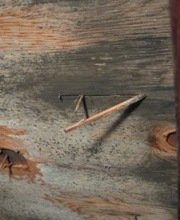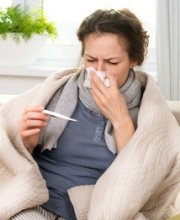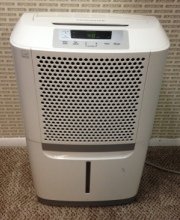Find a Mold Specialist Now
Click or Call, Toll-Free 24/7
How Mold affects dogs
Exposure to household mold affects dogs, as well as other pets, much like it can affect humans. Dogs may be even more susceptible to mold-related illness than humans, though, due to their relatively smaller size (depending, of course, on the breed of the dog and size of the human).
Some breeds of dogs may be more susceptible to mold-related illness than others. Brachycephalic breeds, dogs with short noses and flat faces, are more prone to upper respiratory problems even without exposure to mold (1). Brachycephalic breeds include breeds like boxers, bulldogs, chihuahuas, Pekinese, pugs and shih tzus.
Certain breeds of cats can have the same problem, by the way. Follow this link to learn more about mold sickness in cats.
How Mold Affects Dogs
Mold sickness symptoms in dogs may include:
- Scratching
- Licking or chewing on himself, especially on his paws
- Hair loss (may result from excessive scratching, licking or chewing, but may also be due to a skin rash or other reaction to the mold)
- Noisy breathing (may be a wheezing or rattling sound)
- Labored breathing (you may see your dog’s chest heaving with each breath or it may appear he is struggling to breathe)
- Sneezing
- Coughing
- Runny nose
- Discharge from the eyes
- Rubbing his face on the floor or furniture (as if it itches or as if he is trying to wipe his nose)
- Shaking his head (a sign that his ears itch or hurt)
- Lack of appetite
- Lethargy (sleeping more than usual, not interested in playing)
- Changes in behavior (may be less friendly or affectionate than usual, or may growl or snap when disturbed)
Talk to your vet for more information about mold sickness symptoms in dogs. If your dog appears unwell in any way, contact your vet as soon as you can. Be especially vigilant if you have a brachycephalic breed, since it is likely mold affects those dogs more severely than other breeds. Let your vet know if your dog has been exposed to household mold or if you think mold might be causing your dog’s symptoms.
Dealing with Mold Sickness in Dogs

There are two components to dealing with mold sickness in dogs. Both are necessary for the successful treatment of your dog and for his return to good health.
The first component is veterinary care. Your vet may prescribe antibiotics, steroids or other medications, depending on your dog’s condition. If your dog is very ill, he may need to stay at the vet’s office for round-the-clock care. Your vet may also recommend against returning your dog to your home until the mold has been removed, since continued exposure to mold can make his illness worse. Be sure to ask your vet if it’s safe to take your dog home.
The second component is mold removal. Remember, mold affects dogs and humans alike. To protect your dog’s health, as well as your own health, you’ll need to remove the mold as quickly as possible from your home.
Some people prefer to hire a mold remediation professional, while others prefer to clean a mold problem in their home themselves. The Environmental Protection Agency recommends hiring a professional if mold covers an area greater than 10 square feet, if you have mold in your heating and air conditioning ducts, if the mold was caused by sewage or contaminated water, or if you yourself have health problems that may be made worse by contact with mold.
It’s important to make sure you remove as much mold as possible from the home and to that end, it’s important to understand that mold often grows in hard-to-spot areas. It is possible, common even, to have mold in multiple locations of the home. If you miss some of the mold, your dog’s health will still be at risk since mold affects dogs so severely. Of course, your own health and the health of other family members will also be at risk.
For Help with Mold Removal
If you need help with mold removal, or if you want some professional assistance making sure you’ve located all areas of mold in your home, we suggest scheduling an in-home consultation and inspection with an experienced mold remediation professional. Mold remediation professionals frequently offer free consultations and will visit your home, make sure you’ve located all areas of mold, and advise you about the mold removal process – all at no cost and with no obligation to you. To find qualified mold remediation professionals offering free consultations and home inspections in your area, just follow the link.
Return From How Mold Affects Dogs To Our Main Pets Page
(1)PetMD: Breathing Problem in Short-Nose Breed Dogs
Privacy Policy Terms and Conditions Accessibility Do Not Sell My Information Disclaimer Contact Us




